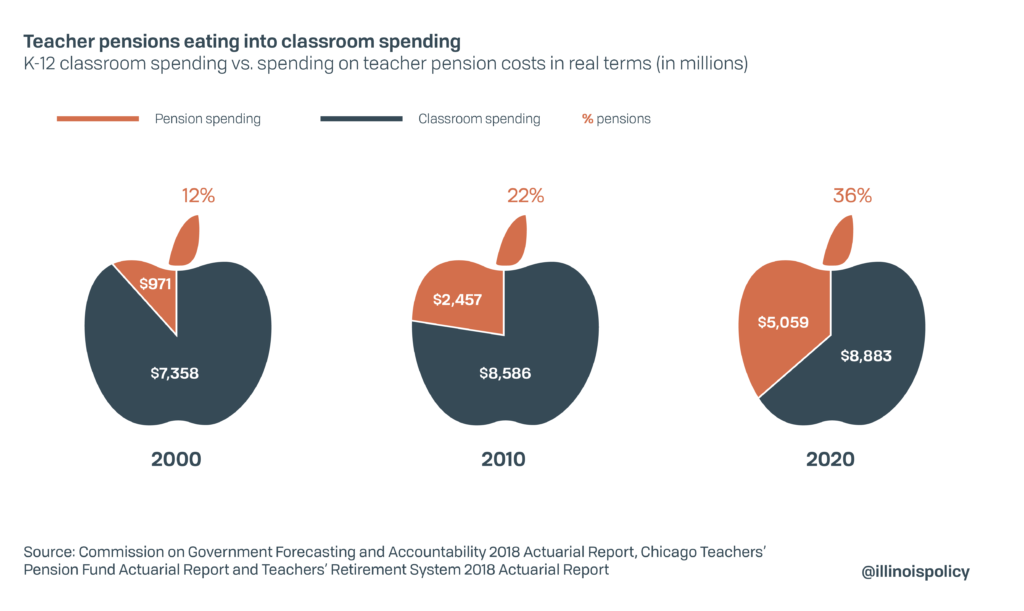Pension costs are crowding out classroom spending across Illinois school districts.
In the coming school year, 36% of the money the state allocates to education will be diverted away from teachers and students to meet required pension payments for retirees.
This represents a 200% increase in spending on teacher pensions since 2000, compared with a mere 20% increase on classroom spending during that period.

This massive growth in pension spending is especially concerning for younger teachers new to the workforce and parents with children enrolled in public schools, whose needs will be put on the back burner to make room for rising retirement costs.
Since 2010 alone, spending on educators’ pensions more than doubled, jumping to over $5 billion from less than $2.5 billion. Classroom spending, meanwhile, grew modestly to $8.8 billion from $8.5 billion.
Simply put, pension costs commanded just around 20% of the state’s total education spending only a decade ago, before jumping to nearly 40% of education spending today.
These growing costs take away dollars needed to operate local schools – especially poorer districts that rely heavily on state funding. This crowding-out effect is one reason pensions are a core driver of Illinoisans’ high property tax burden.
Without real pension reform, hundreds of schools across those districts may have to cut programs, increase class sizes or lay off teachers as more and more new state dollars are directed away from classrooms and toward retirements.